PETER FOERTHMANN – 70 Years – UNPLUGGED

With 70 years on the clock, my life’s drone has soared to a height at which one could be forgiven for expecting a measure of wisdom, a modicum of life experience. But as we know, outward appearances and circumstances are no guide to the state of the grey matter. Only when we go toe-to-toe with the rest of humanity does it become clear whether we have sufficient backbone for life, whether we are adequately prepared, genetically sufficiently well-endowed and in possession of a reliable moral compass. A dash of chutzpah helps too of course, as does luck – at least a smidgeon. The competitive social manoeuvring that kicks in at childhood’s end (if it waits that long) selects and sorts with a merciless zeal that leaves very few winners. It begins before we reach full awareness and continues even beyond the grave: only once the final wrangles of inheritance have been resolved can we really pretend to have any certainty as to the true nature of the people who surround us.
Forgive me these sweeping statements and impudent generalisations: being fortunately still of this world and largely unburdened by the green-eyed monster of envy, I remain (sometimes quite naively) happy and carefree and thus more than content to fill in the details behind my somewhat tongue-in-cheek opening assertions.
Now how does that sound as a pitch?

LIFE IN THE FAST LANE
Five and a half decades paddling hard to make a living from the sea, 41 years in harness with Windpilot (probably one of the smallest industrial manufacturing companies in Germany), 46 different boats, 220 boat shows, several adventures through foreign court systems, a smattering of disloyal agents and a fourth marriage 14 years ago that has brought peace and happiness at last: my life, I confess, has been conspicuously short of dull moments. I have experienced more than I would ever have wished, particularly of the many darker sides of human existence and interaction. I have no complaints, however, and – even though I am already collecting the pension of a stately €158 earned from my youthful days at sea – I don’t expect to run out of ideas any time soon. The slings and arrows of outrageous fortune indeed. Yet there is no outrage on my part: content with my lot and accustomed to living at breakneck speed, I wouldn’t have it any other way.
With efficiency, conviction, stamina and a measure of IT skills, even a team of just husband and wife can run a global company. Yes, I do feel a certain sense of pride stirring as I write this. And why not? Without a snifter of narcissism, we’d all be shuffling around in circles with our head under our arm!
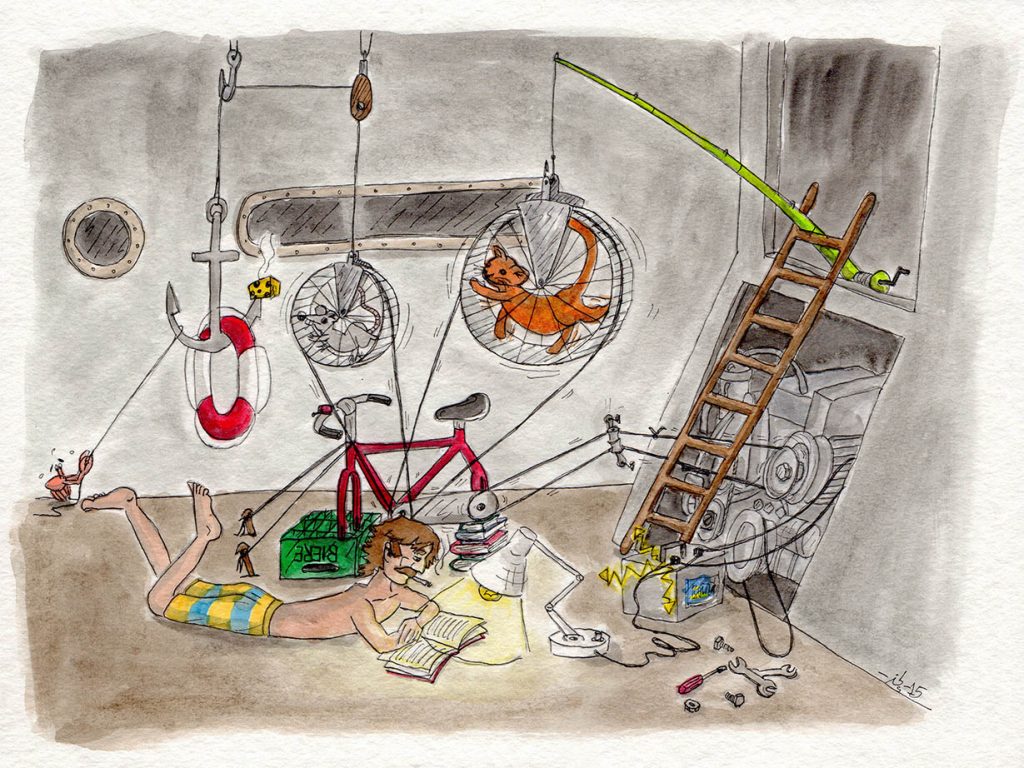
GOING TOE TO TOE
Being around people is what keeps me alive and thriving, what puts the spice (and sometimes the heat) in my work, generates that all-important edge and keeps the pleasure in life. It helps that my customers, as sailors, tend to be a little bit different, something that no doubt stems from the distinctive mindset demanded by our sport: (prospective) bluewater sailors need material resources (and the means to acquire them), of course, but they also need the strength of mind to venture beyond the mainstream and the comfort of home waters, to trust in their own abilities and to cope with the mental challenges inherent in long-distance sailing. Strong personal relationships often hold the key to happy times at sea – and we know very well that symbiotic relationships work particularly well in the life afloat (as ashore).
I would like to share a little of my social experiences and insights here because I have come to regard them as critical to life’s successes and setbacks. Our social life experiences – amicable and otherwise – shape us as individuals, drive us forwards with enthusiasm renewed or pull the psychological rug from under us, sharpen our convictions or set us on a course for the head-shrink’s couch, knock the wind out of us and sow the seeds of somatic diseases or gift us the resilience to keep our head high and steer life in the direction we want it to take. Going toe-to-toe forges vital inner strength. This, it seems, is the path to the kind of inimitable satisfaction with life that radiates from the face of the authentically contented and to the genuine friendliness that makes such a wonderfully honest mirror of the soul. And to a genuine openness to the pleasures of sarcasm, sarcasm, of course, being a characteristic trait of the winning mentality (sarcasm alert…).
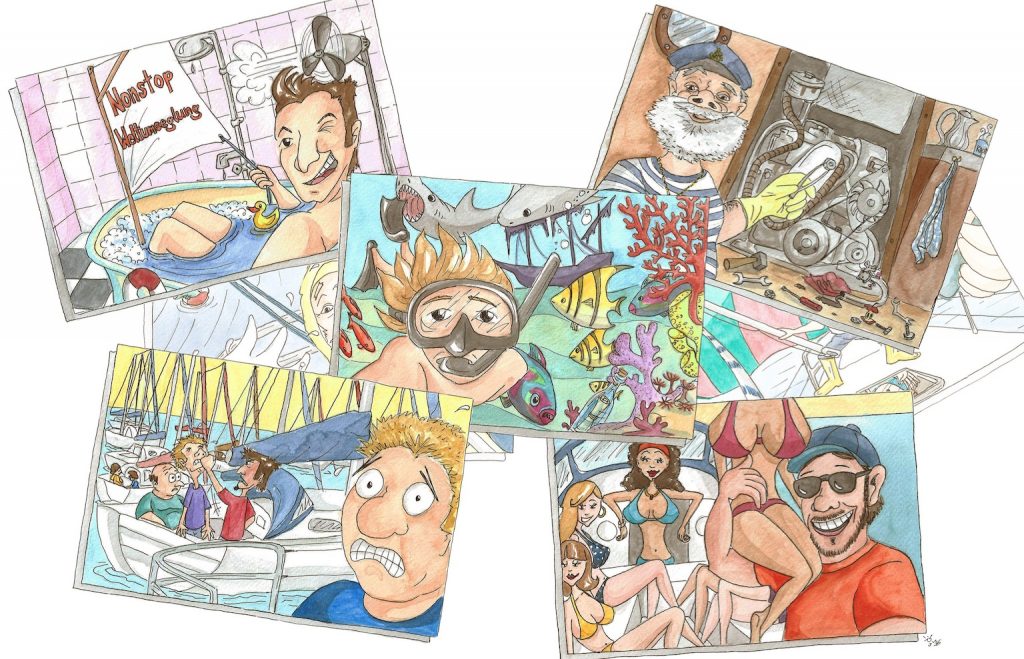
FIRST-NAME-TERMS?
Terms of address can tell us much about the state of a relationship. There is a button somewhere inside the brain that defines how much distance we require and accept, whether we stand off aloof and observe or feel driven to launch forth on a tide of over-familiarity and beach ourselves prostrate at the feet of someone still little more than a stranger. Once dealings shift to first-name terms, we can usually work out fairly quickly how our new counterparty ticks, how his or her social balance is weighted and whether he or she intends to play a straight bat or move swiftly on to exploiting/trampling us on the basis that anyone who so easily lowers the formal defence of a title before their name must be easy pickings. It can be a complicated balancing act (even in English, which is far simpler in these matters than many other European languages), not least because it is such an awkward step to reverse once taken. The retreat from informal to formal can never be completed without collateral damage.
HOW FORMAL? HOW INFORMAL?
How formal is too formal? How informal too informal? In English, we just have to worry about whether to use first names or stick to Mr/Mrs – a decision that can often be skirted around with a judicious choice of words. German, in contrast, provides no wriggle room because it is impossible even to say “you” without choosing between formal (“Sie”) and informal (“Du”) options. Linguistic informality has become the norm in more recent times not just in the Apple Store but also in most businesses and organisations. Which is fine when this informality is used to signal a general sense of solidarity and shared objectives, but it can also be used as a blind, a form of camouflage behind which to conceal malicious intentions: it’s all buddy-buddy first-name terms but as soon as you let your guard down you find the shirt off your back has gone… Faux informality is an insidious weapon (a statement as true for personal relationships as it is for business relationships) and yet we also crave informality for what it signals: the person who shares first-names terms with no one is a lonely island and the promise of a little (perceived) linguistic warmth from a dropped Mr or Mrs might perhaps hold out some comfort.

NO GOOD GOING IT ALONE
We know that a life shared – in company, harmony and love with another – is the most enjoyable course. Indeed I would go so far as to say that when it comes to human existence, the permanent single-handed life is no life at all: too many areas of life and too many of the experiences available to us as people need to be shared in order to be fully appreciated. This much I have found out for myself!
Social interaction is vital and essential to help us retain a healthy equilibrium and perspective. Social interaction, however, begins (on the whole) with language, which brings us back to the question of linguistic formality and the pitfalls awaiting the unwary.
TRAPPED BY KIND OF WORDS
Life can become a constant high-wire act if one does not know how to set one’s own clear boundaries, but boundaries that are too strict and exclusive can take away the fun altogether. Perceptions are what counts and it is no good alienating everyone with the best of intentions and then lodging a heartfelt complaint with the sad face looming in the mirror.
I have certainly sinned when it comes to boundaries. Whether they were poorly demarcated to begin with or just too much trouble to enforce in practice I wouldn’t want to say, but the fact is I have time and again allowed them to be breached – be it to show friendship, equanimity or my humanity – because I trip up on my own conflicts or simply out of empathy with my interlocutor. The reason matters not. I regret none of it, but I can report with feeling that I have repeatedly (too frequently, perhaps?) had to pay for my lack of clarity in this respect (I have shared many of the associated tales elsewhere in my blog, thus clearing mental capacity to do it wrong all over again a different way). Still, at least every successive “oversight” apparently builds further resilience.
My refined – and dare I say it rather naive – ability to sense what people want and let them have it has led me into some dark places I could easily have avoided with a few clear lines in the sand and the care/presence of mind/ruthlessness to step back before I plunged up to my neck in it. Did I not receive sufficient warning of the shark-infested waters into which my verbal adventures so readily draw me? I realise now that my powers of imagination have never been strong enough to gauge the full moral elasticity and sheer envy of other people. I live and learn – and so it goes on!
It seems to be a part of the spirit of our age – and it is certainly very easy – always to place the blame for our own mistakes at someone else’s door irrespective of the merits of the case (and there are always parents there to be blamed in the absence of any other plausible candidates). Accepting responsibility for one’s own life and actions is a challenge people all too often choose to shirk, opting instead to curate their own legend and keep themselves within the ranks of those now ubiquitous flawless souls who (strangely enough) never seemed to exist in the days before Photoshop and social networks.

FORMALITY AND RESPECT
The English language, as I have already mentioned, allows speakers more scope than German to blur the linguistic boundaries between formal and informal. This can be very helpful of course but it also removes one easy way of professing respect. Taken at face value, the German formal “Sie” form for the word “you” conveys a recognition of the social distance between individuals that is less easily articulated in English. And yet it is entirely possible to communicate politely and respectfully in English, demonstrating that there is actually no hard and fast link between formal language and respect. Comparing German-language sailing forums with their English-language counterparts reveals that respect and consideration tend to be in short supply in the former, a state of affairs that has led many a more serious contributor to step away from the keyboard. Forums in Germany have become echo chambers where dissenting opinions no longer take the trouble to venture.
Is it really hip to be down with the kids?
Youth is cool: even those closer to the grave than the cradle seem to feel drawn, like flies to the dung heap, to the informality of youth-speak and to the follows and likes and incessant quest for more apparently life-affirming clicks that go with it. The reduction of social interaction to a single thumb pointing either up to heaven or down the other way is a worrying regression to playground politics. Life teaches that the line between friend and foe is fluid; the rules evolve constantly and a change in context can make a malicious smirk out of a sweet smile in an instant. True friends are a rare bird indeed. Again, this much I have found out for myself!
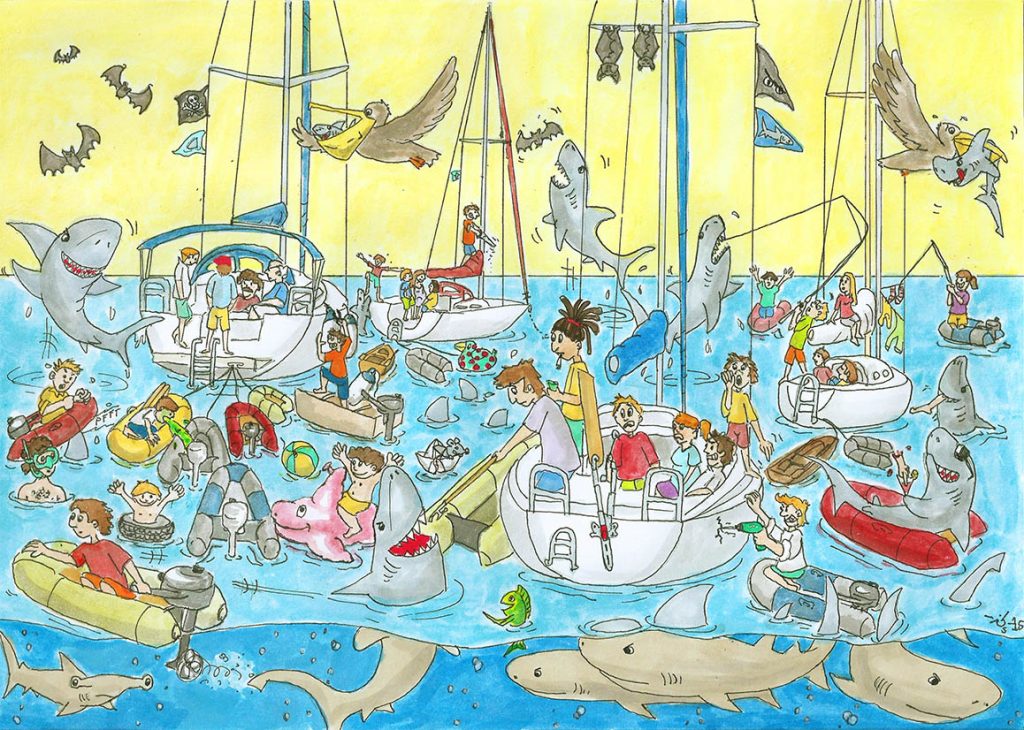
SAILORS DON´T DO SURNAMES
One day the effusive skipper of not the grandest of watercraft turned up at our house, addressed my wife with the informal “Du” and justified himself with the line that the more formal “Sie” was, in his words, only used by “a***holes”. My wife stopped him in his tracks so fast I could almost smell his tyres burning. He made a few more half-hearted attempts and then left the house looking thoroughly diminished. I suppose he must have had a very different idea in mind of how the visit would play out. My admiration for the boss and the certainty of her response subsequently crystallized into a mental benchmark for me as I came to realise how deftly she had fended off a planned subjugation. Apparently social interaction can be perfectly straightforward after all – another of life’s lessons learned, another round of internal recalibration…
The direct approach, for all its merits, is often out of the question in everyday scenarios though. Their own needs, dependencies and hopes persuade many to feign friendship with the enemy, to accept a servile informality and stroke the other’s ego if only there is the promise of some reward at the end of it all. The power structure here is all vertical: the language may be informal but there is certainly no trace of solidarity or mutual respect. Happy the soul who bears his or her independence like a jewel close to the heart whenever possible. Whenever possible … ay, there’s the rub!
RESPECT OILS THE WHEELS OF LIFE
When it comes to professional life I know my oats. I’m dedicated, confident in my position and respected for my expertise, I know my obligations and responsibilities and enjoy a constant dialogue with the international sailing community, which respects me as I respect it. My business and the contacts it generates have yielded friendships all over the world that bring me pleasure and mental stimulation day in, day out. Word of mouth marketing is in the end a matter of always talking to people and listening carefully to what they say, of making the effort to understand and acknowledge people’s experiences and of cultivating an atmosphere of mutual respect. How wonderful that it is possible to do this and make a living into the bargain! That said, the respect I and my products enjoy did not come for free. We have worked tirelessly for it over many years and I believe we deserve it: quid pro quo.
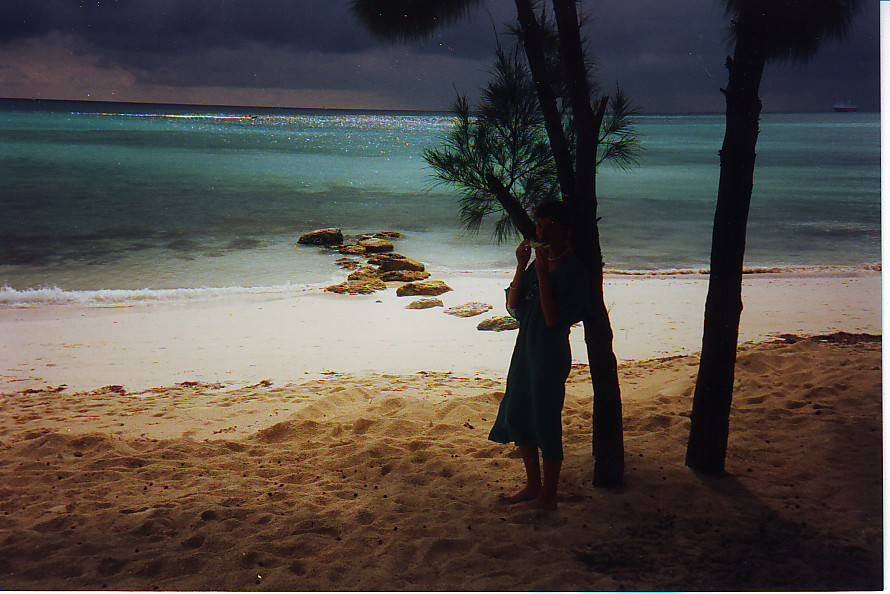
OTHER BUSINESS CONCEPTS
Obviously this adherence to my traditional business concept leaves me looking like a dinosaur in our age of rapid expansion, overnight success and scarcely conceivable balance sheets but I ask you (and myself) this: would the pressures and consequences that go hand in hand with such approaches ultimately result in happier owners? Some of my most loyal customers come from this very background and their input to our endless discussions is hugely valuable. It gives me pleasure to incorporate their insights and experiences into my own understanding.
Straight-laced investors with a trained eye for niche companies would probably regard Windpilot as a tasty little morsel to be gobbled up, brought into line with market conventions and then milked for whatever cash it can offer. It remains to be seen whether my own very different recipe can compete in the long term, but until the results are in I will continue to regard my brand as a polished diamond with a radiance that speaks for itself: no adverts in the press, no paid-for reviews or publicity, no boat shows – in fact nothing at all by way of conventional marketing – and yet sailors all over the world still somehow come to hear of Windpilot and actively seek out our products.
How long can I realistically expect this to continue? Well, I have seen nothing yet to sow the seeds of doubt in my mind.

MY WAY
There is a world out there in which growth is everything, in which even holding station sets the alarm bells ringing and in which the never-ending struggle between costs and income all too often threatens to tip the wrong way. That is not my world. Every last inch of Earth’s inhabited coast now seems to understand the advantages of silent self-steering and I can’t see me ever managing to satisfy global demand fully. My work earns me a decent living, in other words, as well as bringing a level of enjoyment that I would imagine is obvious to regular readers of this blog.
ENCROACHMENT
Is it not remarkable the way people so often seem so driven to extend their reach, to expand their sphere of influence? (To increase their relevance?) Is it people’s inherent hunger to inflate their own return – to fly ever closer to the sun – that can make social interaction so enormously difficult? Do envy and greed undermine all social structures? That may be so, but then different people respond to these pressures in different ways. I, for example, responded a few years ago by launching a blog to afford my views a slightly wider public airing. Then as now, I saw that as the logical path to follow (although whether it has brought me any closer to emulating Bernard Moitessier, who made it all the way to Tahiti on the back on one bold unconventional idea, I wouldn’t like to say). That is what matters!
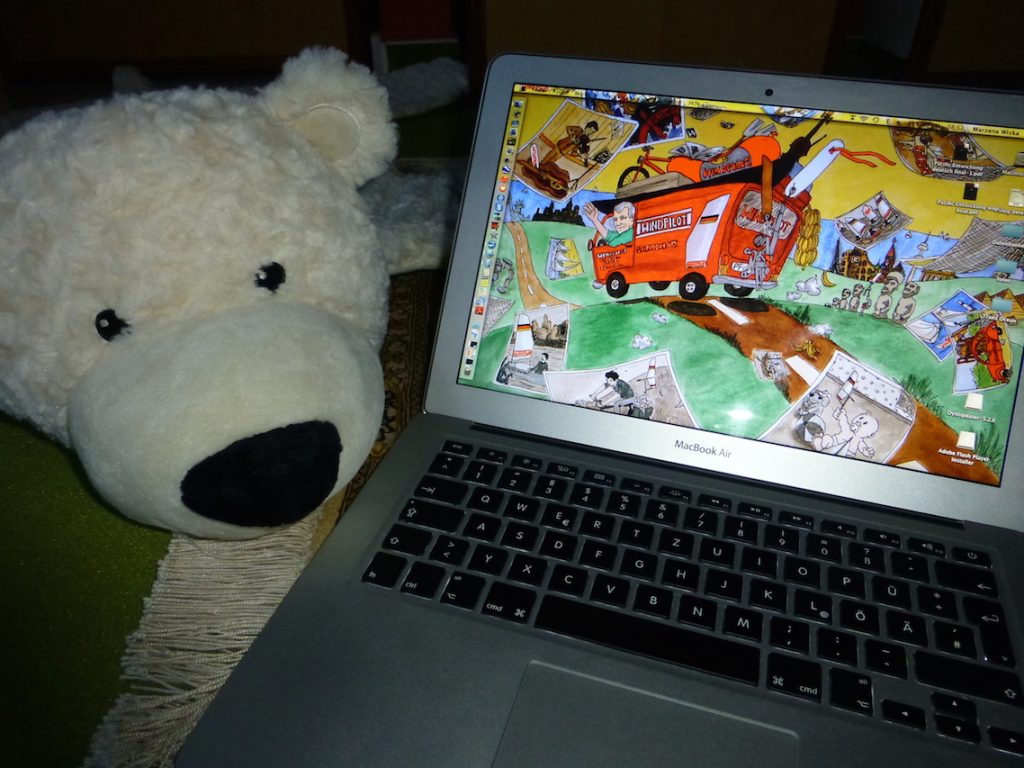
THE WINDPILOT BLOG
Sometimes my fingers cut loose on the keyboard almost without my knowledge, so strong is the urge to write. Words are my outlet, my pressure relief valve and my way of channelling my responses to events and developments that move me for good or for ill. My writing gives a curated view of the world as I see it (from my three-score-years-and-ten vantage point): only if the facts of the matter still seem sufficiently interesting after careful collation and evaluation do they make it as far as being shared. There is of course pleasure in the writing too and self-healing in the contemplation: psychoanalysis at its best I would suggest! There is obviously also money to made from writing, but I have no desire at all now to go down that path. Windpilot pays my bills and that is enough.
Does all of this make me something of an outlier in an age in which online and print media generally appear compelled to exploit every opportunity for monetarisation, from intrusive banner ads and sponsored links to the joys of the “advertorial”? Of course it does! And so too does the fact that I feel no obligation or compunction to farm my decades of accumulated experience for hard cash (see here).
This blog allows me to let off steam, to share my thoughts on and illuminate in the round those incidents and examples of human behaviour whose (to my mind) inherent blinding injustice might otherwise spoil my appetite (I have learned that a strong sense of fairness can attract criticism from some quarters – which I obviously find terribly unfair). I believe it is important to be prepared to stand one’s ground. Everyone has to draw their own lines in the sand and I make no exception for myself.

EXPERIENCES FROM THE FRONT LINE THERE´S SOMETHING ROTTEN INTHE STATE OF PUBLISHING
My disillusionment (there are stronger terms I could use) with the concerted actions of the governing board of a certain German sailing association in Cuxhaven and a certain German publishing house will be very familiar to regular readers of my German-language blog. It astonishes me that two cooks whose plans for the broth could hardly be more transparent stubbornly continue to pursue their joint efforts to commercialise the bluewater scene. A deathly hush on the Trans-Ocean association’s internal forum and a rather sparsely populated chart of boat locations around the world indicate that the organisation’s chickens are already coming home to roost. Do I see before me the rump of an association (much of whose former constituency no longer wishes to be associated with it) being kept alive by a publishing house? Simply in order to sell bluewater sailors books and a magazine? The tail is wagging the dog, am I right?
The lack of judgement and vision demonstrated by the people responsible takes my breath away. The publishers could hardly pick a worse horse to back. Why throw in their lot with a governing board that has been embroiled in unseemly legal proceedings for years and has clearly treated (and persists in treating?) its members and their interests with disdain while continuing to funnel an almost comically large proportion of their membership dues into “administration”? The mess just refuses to go away. The risks involved for the publishers are anything but trivial too: when an association that purportedly exists to further the interests of its members leaps into bed with a commercial enterprise, the blurring of the lines between member and customer is hardly likely to go unnoticed.
The conflict swirling around this issue seems to me a pox on the German bluewater community: a few people who find themselves in a position of power seem to be actively attempting to dupe the perfectly sensible ordinary sailor.
And how great must the pressure on the people responsible for this be if they are prepared to go so far as to equate an (admittedly outspoken) critic with a “hate preacher”? Explosive words – and more than likely to backfire!
I have shone a light on many of the connections and correlations over the last six years. And yes, I am fully cognisant of the folly of trying to obstruct a runaway train. If what we end up with then is a public-interest bluewater sailing association being subjugated to the monetarisation imperatives of a publishing house, if membership fees are increased again merely in order to sustain in office (and in the manner to which it has become accustomed) an apparently incorrigible governing board that is happy to offer its members nothing more than a few grand pronouncements and the odd product discount, eventually every last well-meaning sailor will come to understand exactly what kind of an organisation we are dealing with: an association working hand-in-glove with a publishing house into the arms of which it feeds a steady stream of the unwary (and why should they be wary?) primed to be sold “experiences of every kind”.
It’s not conjecture, it’s an opinion!
Peter Foerthmann





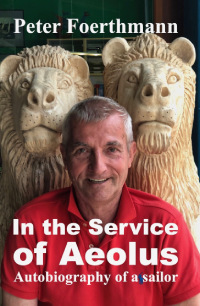

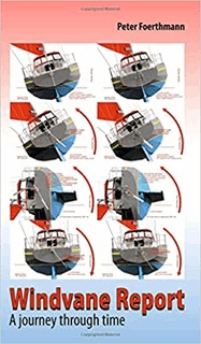
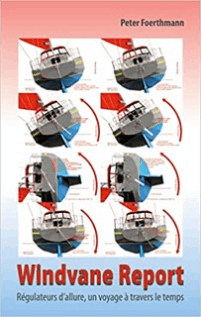
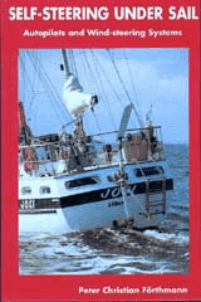
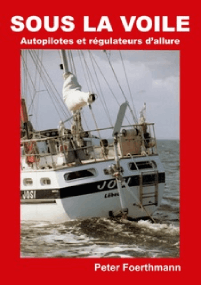


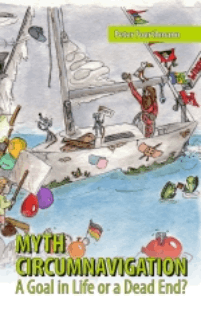
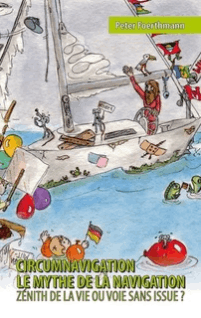
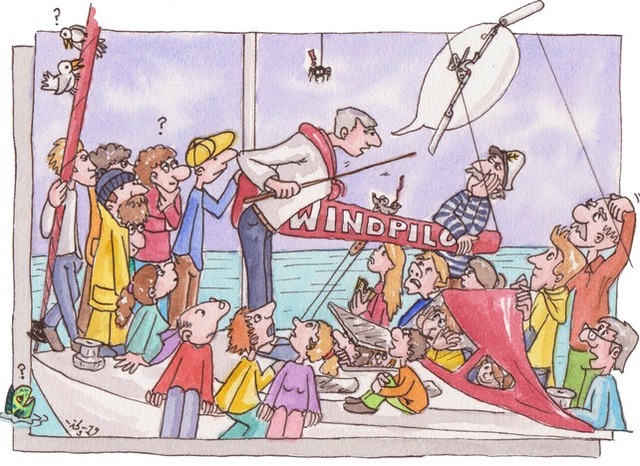
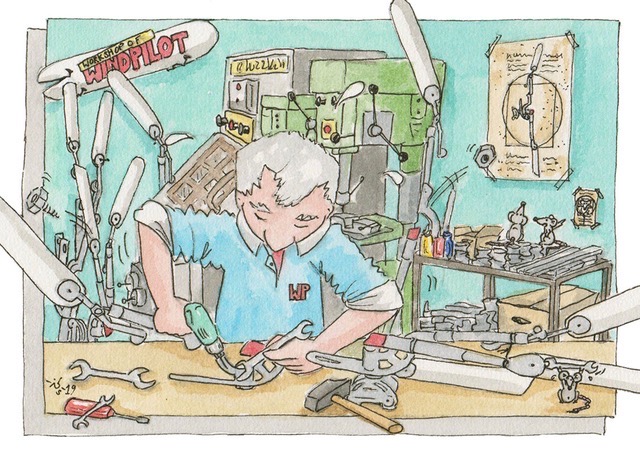

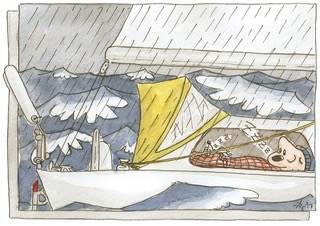
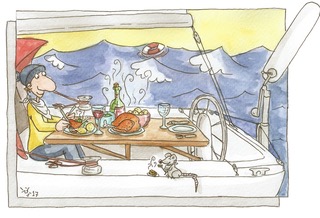
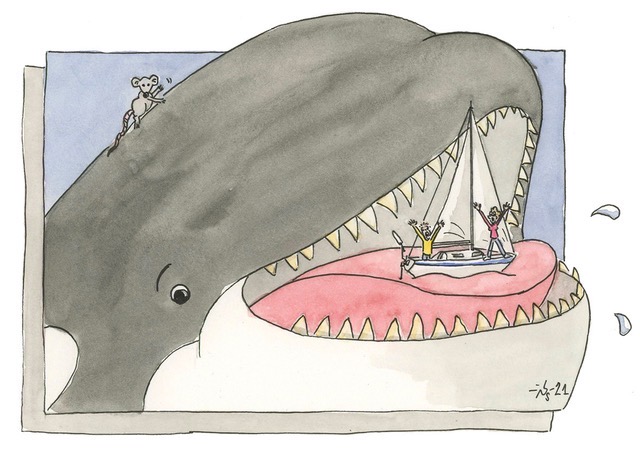
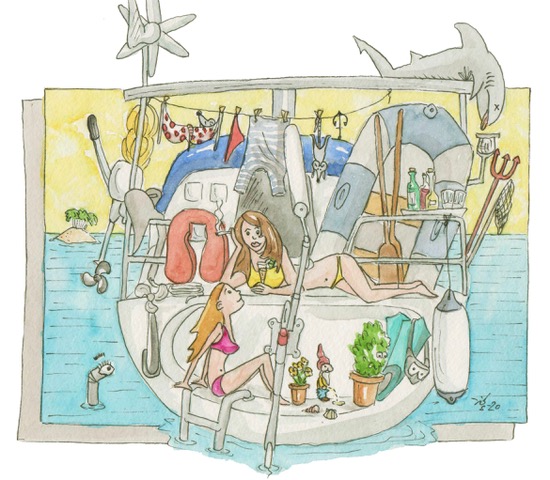
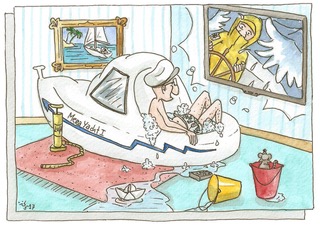
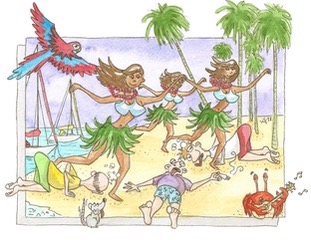
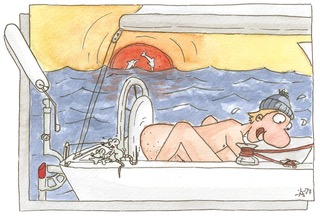
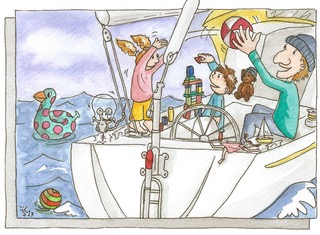
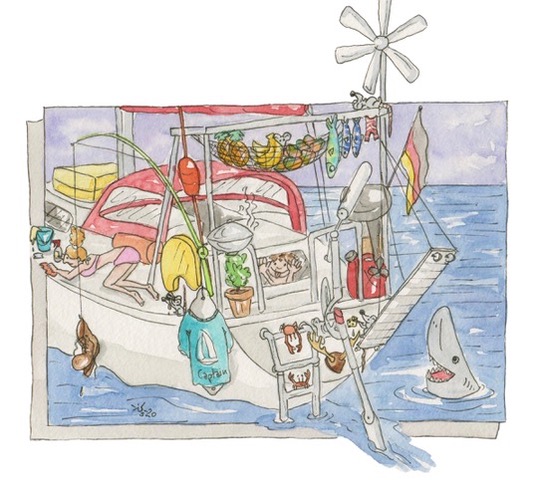

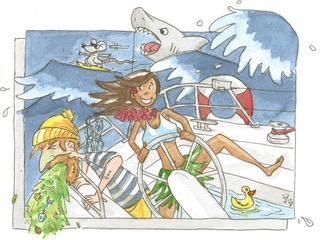

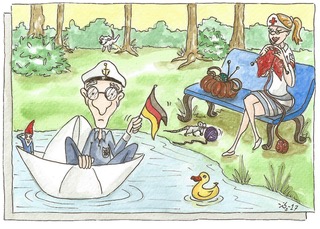
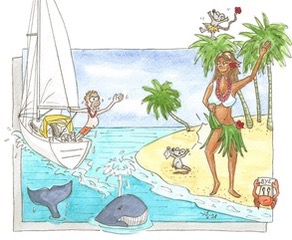

Nice reflections of a life dear Peter. We wish the best for you and your beloved woman